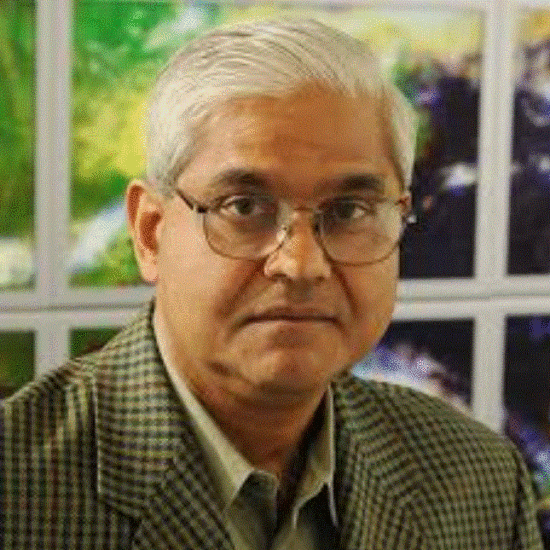Dr. Jagadish Shukla
Director, Center for Ocean-Land-Atmosphere Studies Professor, George Mason University
Dr. Shukla is the Director of the Climate Dynamics Program at GMU. Shukla was born in 1944 in village Mirdha in the Ballia district of Uttar Pradesh, India. This village had no electricity, no roads or transportation, and no primary school. Most of his primary education was received under a large banyan tree until his father established a primary school in the village. His father, the late Shri Chandra Shekhar Shukla who was headmaster of a middle school in a nearby village (Sukhpura), bought science textbooks for classes sixth to tenth and insisted that he study them during the summer holidays before admission to the next grade. After passing the twelfth grade from the S. C. College, Ballia, he went to Banaras Hindu University (B.H.U.) where, in 1962, he passed the B.Sc. (honors) with Physics, Mathematics, and Geology, and in 1964 received the M.Sc. in Geophysics. He received a Doctor of Philosophy (Ph.D.) in Geophysics from BHU (1971) and a Doctor of Science (Sc.D.) in Meteorology from the Massachusetts Institute of Technology (MIT) in 1976. In 2008, he was appointed by the Governor of Virginia as a member of the Commission on Climate Change. He was one of the Lead Authors of the 2007 report of the Intergovernmental Panel on Climate Change (IPCC), which shared the Noble Peace Prize with Vice President Gore. In 2007, he received the International Meteorological Organization (IMO) Prize, considered to be the highest prize in meteorology in the world.
He is a Fellow of the American Geophysical Union, the American Meteorology Society, India Meteorology Society, and an Associate Fellow of TWAS (the academy of sciences for the developing world). He has been the Ph. D. thesis adviser for about 20 students at MIT, Univ. of Maryland, and George Mason University. Professor Shukla has exerted a tremendous influence on the field through his publication of over 200 scientific papers, reports, and book chapters, his direction of 20 Ph.D. students’ dissertation research, and his leadership of several national and international advisory and planning panels.



